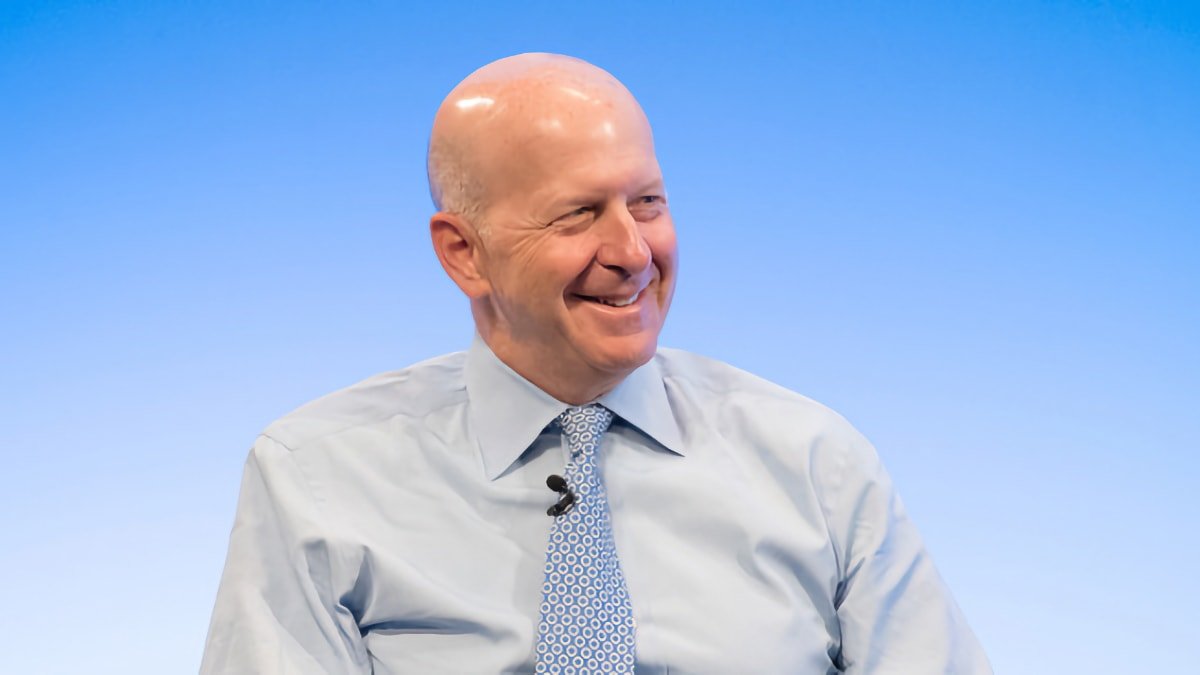Feds looking at Goldman Sachs' Apple Card business unit
The Federal Reserve has opened an investigation into Goldman Sachs to determine if the bank's consumer credit division, which for now includes Apple Card, has enough consumer protections.

Goldman Sachs CEO David Solomon
The bank posted losses in its consumer business on January 13, primarily related to the Apple Card. It lost over $1.2 billion in pre-tax losses in the first nine months of 2022, driven mainly by loan-loss provisions.
Goldman also had plans to expand Marcus, its direct-to-consumer business. However, the Fed is now examining if Goldman had used appropriate oversight over Marcus and if it has problems with management or governance, according to a report on Friday from The Wall Street Journal.
Additionally, the Fed will determine what happened in instances of consumer harm, such as whether issues were flagged internally and, if they were, whether the bank adequately resolved them. The probe involves Goldman's compliance functions, auditing, and legal departments.
The bank is folding most of Marcus into its new management unit for assets and wealth. The other parts -- including the Apple Card division -- are moving to the Platform Solutions unit.
"In the consumer platforms, we did some things right. We didn't execute on some others," said Goldman Sachs CEO David Solomon on Wednesday. "We probably took on more than we should have, you know, too much, too quickly."
Goldman Sachs is also currently under an investigation from the Consumer Financial Protection Bureau (CFPB). The CFPB is looking into Goldman's credit card account management practices, refunds, and billing error resolutions.
According to people familiar with the matter, the Federal Reserve and CFPB are sharing information with each other from the investigations.
It was expected to launch with the release of iOS 16.1, but it didn't appear in that version, nor in iOS 16.2. Apple hasn't publicly commented on the delay, but it now seems likely that the problems faced by Goldman Sachs might be the part of -- or the entire -- reason.
Read on AppleInsider

Goldman Sachs CEO David Solomon
The bank posted losses in its consumer business on January 13, primarily related to the Apple Card. It lost over $1.2 billion in pre-tax losses in the first nine months of 2022, driven mainly by loan-loss provisions.
Goldman also had plans to expand Marcus, its direct-to-consumer business. However, the Fed is now examining if Goldman had used appropriate oversight over Marcus and if it has problems with management or governance, according to a report on Friday from The Wall Street Journal.
Additionally, the Fed will determine what happened in instances of consumer harm, such as whether issues were flagged internally and, if they were, whether the bank adequately resolved them. The probe involves Goldman's compliance functions, auditing, and legal departments.
The bank is folding most of Marcus into its new management unit for assets and wealth. The other parts -- including the Apple Card division -- are moving to the Platform Solutions unit.
"In the consumer platforms, we did some things right. We didn't execute on some others," said Goldman Sachs CEO David Solomon on Wednesday. "We probably took on more than we should have, you know, too much, too quickly."
Goldman Sachs is also currently under an investigation from the Consumer Financial Protection Bureau (CFPB). The CFPB is looking into Goldman's credit card account management practices, refunds, and billing error resolutions.
According to people familiar with the matter, the Federal Reserve and CFPB are sharing information with each other from the investigations.
Where is Apple Savings?
The investigation may be the reason for the delayed launch of Apple's Savings feature it announced in October. Apple Card users were to have the option to transfer their Daily Cash balance into a special interest-accumulating Goldman Sachs savings account.It was expected to launch with the release of iOS 16.1, but it didn't appear in that version, nor in iOS 16.2. Apple hasn't publicly commented on the delay, but it now seems likely that the problems faced by Goldman Sachs might be the part of -- or the entire -- reason.
Read on AppleInsider

Comments
an example, CPI report Fed based their policy on said there was a .8 increase in housing and shelter in December. Show be one place in this country housing increased by .8 percent in December…. The answer is none as all housing has been plunging since summer…
but the Fed is still using that lagged data…
so the Fed need to look in mirror before telling a Goldman what to do to protect consumers
What the BLS measures for the Shelter category (as regards CPI) is the cost of renting for actual renters (excluding, e.g., utilities), the theoretical cost of renting for homeowners, the cost of lodging away from home (e.g. at college or in hotels) and the cost of renters and homeowners' insurance. The rent equivalent for homeowners is by far the largest component of the Shelter category, but it isn't based on the prices of current home sales. It's based on what they'd be paying in rent if they were renting instead of owning their residences. In other words, it's based on current rent prices.
The Housing category includes the Shelter category and some other things - e.g., in effect, utilities. But it still doesn't take into account current home prices. Again, CPI measures are about spending on consumption goods and services rather than capital goods investment.
Rental costs have been flattening and are perhaps just now rolling over (it depends on what reporting you look at), but they haven't been plunging, as you say, like home prices have been.